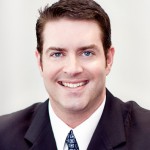Profiles in Recovery

Jake Nichols
A pharmacist with an opiate addiction is a volatile combination. Nichols’ 15-year narcotics habit cost him a high-profile career and led to criminal charges for writing fake prescriptions and diverting drugs. After entering Massachusetts’ treatment program for addicted pharmacists, Nichols fully recovered. Today he’s rebuilding his life and aims to “help others fight this horrible disease and to demonstrate that recovery is possible.”
NextAt my worst, I was:
Broke, divorced, unemployed and facing 513 felony charges all related to writing fake prescriptions to support my addiction.
What worked for me:
Exercise was essential – I was encouraged to join a gym and start lifting weights – I still do so five days a week. 12-step meetings were a lifesaver early in my recovery. I found a group that embraced me and I did 90 meetings in 90 days.
I spent a week in detox, three weeks in an intensive outpatient program, and was on buprenorphine for about six months. I enrolled in my state’s treatment program for pharmacists. For a period of five years, I was required to attend at least four 12-step meetings per week, a professional support group once a week, see a therapist for at least two years, and submit to random urine drug screens up to 15 times a year.
Favorite recovery quote:
“Good men fall every day. It’s the great ones that decide to get back up.”
What I value most in recovery:
Recovery has brought peace to my life for the first time ever. Stress doesn’t bother me the way it used to . . . I am emotionally available for my family and my significant other. Things like money and titles are no longer important to me.
Rules I live by:
- Every morning when waking, remind yourself of the challenges you have faced and the progress you have made; identify what you need to do that day to stay clean
- Under any circumstances, don’t judge others – always try to see the good in them
- Live in the moment and don’t try to figure out what will happen tomorrow
- Do at least one kind deed each day
- Remind someone close to you that you love them every day
Stigma I faced:
Many of my friends and peers turned their back on me and to this day refuse to have any contact with me. I was initially treated as a criminal by my respective state licensing board. Although things have improved in the five years that I have been working in addiction medicine, we still have a long way to go.
Proud moment:
Reinstituting my pharmacy license (last summer) and being praised by the Board of Pharmacy for helping others suffering from addiction.
Best advice for newbies:
Your sole priority is finding your recovery recipe and acknowledging that you need to follow this without wavering. This may include medication, counseling,
12-step meetings, exercise, family therapy or any of the other numerous programs available. Put in the work up front – it will pay off in the end. Recovery truly is a gift.
Shed the Stigma:
If you’re a person in long-term recovery who wants to share your insights, please contact us at [email protected].